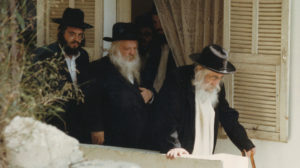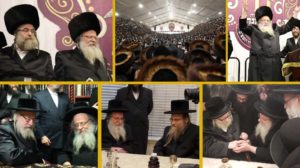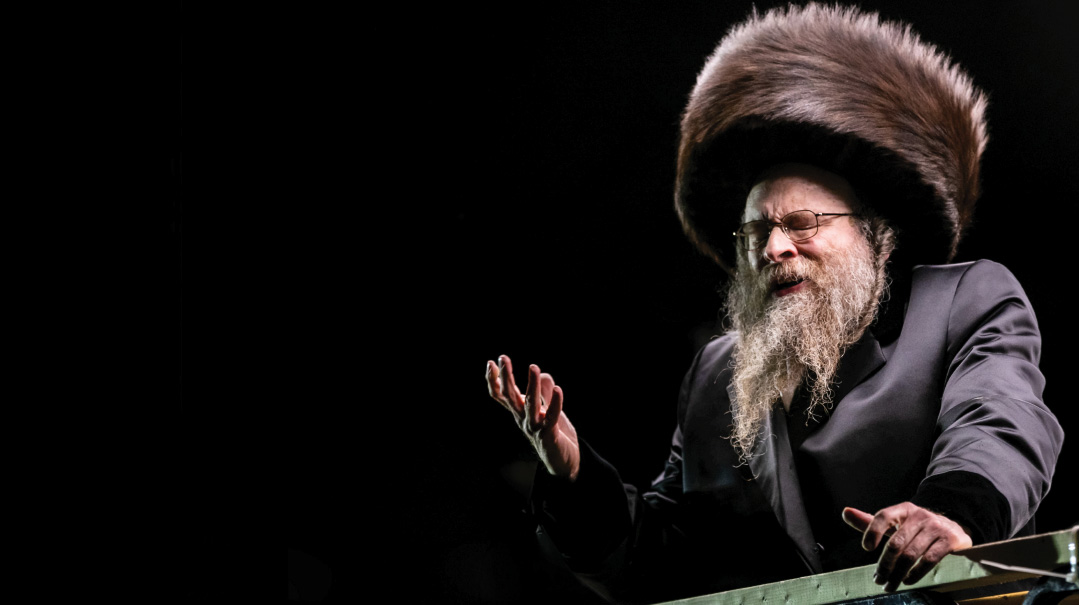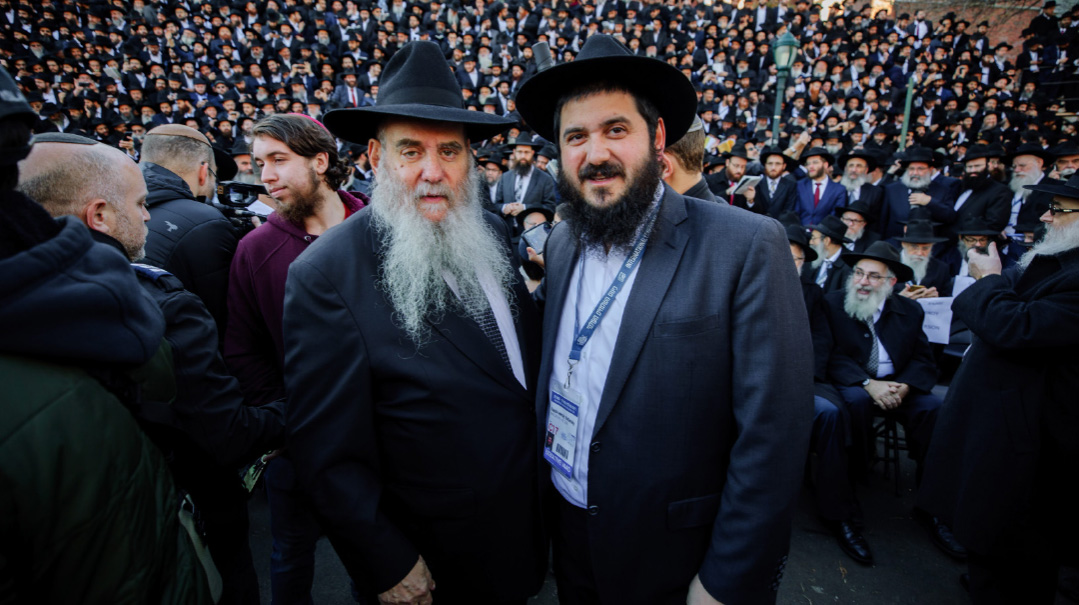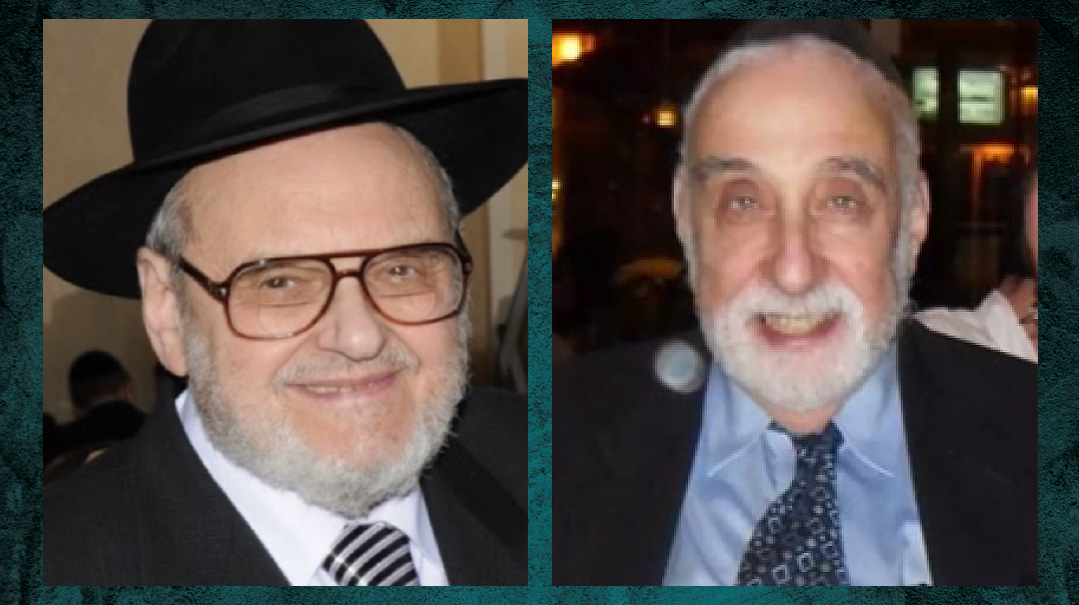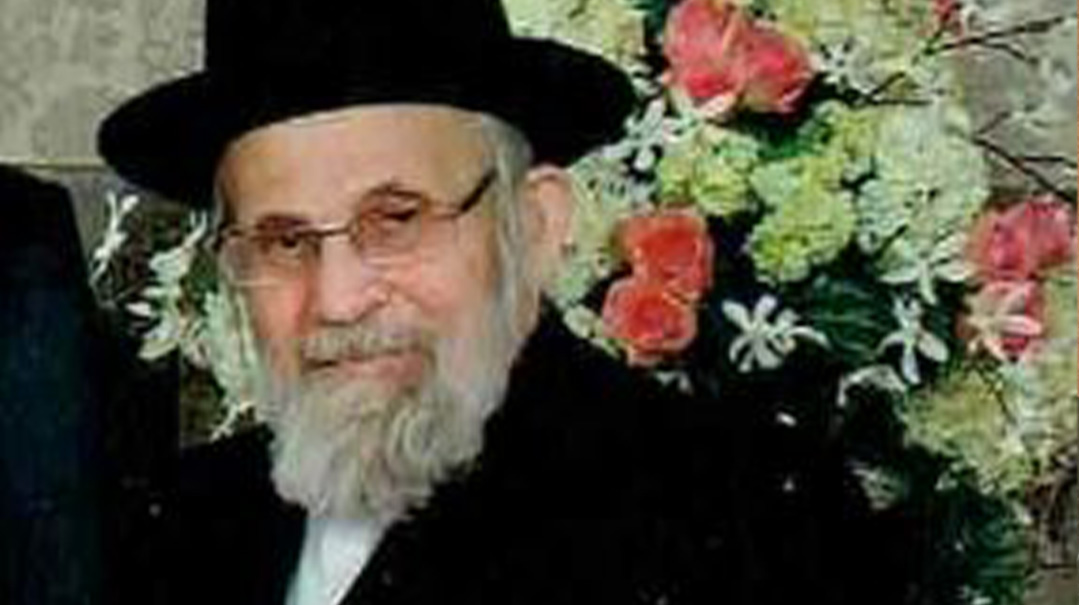Transplanting the Dream
| August 10, 2011T
u B’Av has always been a special day for our nation. In the times of the Beis HaMikdash, it was a day of rejoicing as the nation filled the yearly quota of wood needed to fuel the divine fire on the Mizbeiyach. It was also a day devoted to helping young girls find their bashert.
This year, Tu B’Av also marks the twenty-fifth yahrtzeit of my beloved rebbetzin — Rebbetzin Vichna Kaplan a”h.
Rebbetzin Kaplan was the founder of the first full-day Bais Yaakov High School in America. She inspired a generation of Jewish women who would fuel the divine fire of Torah in America by marrying men who shared their love for Hashem. Rav Aharon Kotler ztz”l acknowledged this point, stating that if not for Bais Yaakov, the yeshivos would be forced to close. It would be pointless to produce bnei Torah, if there were no nashim k’sheiros for them to marry.
A Giant of Spirit
I can still recall how Rebbetzin Kaplan appeared to me as a thirteen-year-old girl starting high school. She seemed to be a giant of a person, although physically, she was on the short side. She was impeccably dressed, with not a hair of her sheitel out of place. Most memorable was the radiant smile that graced her face. When Rebbetzin Kaplan was in the room, I felt as if the Shechinah was hovering over her and HaKadosh Baruch Hu was walking right beside her.
“This regal, awe-inspiring woman was a study in contrasts. She was soft, warm, and loving, as well as, in her own words, tough as steel. “My name was Eisen [her maiden name] and I am eisen [“iron” in Yiddish].” She was completely open to ideas regardless of their originator — a result of the deep respect she had for every human being. A young ninth-grader would be taken as seriously as a senior teacher. On the other hand, she would not veer an iota from her ideals.
As a young girl, she was a shy, quiet, unassuming orphan, but she grew up with giants of the spirit, and forever after, she stood on their shoulders. Although terrified of public speaking as a youngster, she did not flinch when standing up to those not entirely in sync with the Torah. Her vision was broad and far reaching, yet she was completely grounded in current reality. Everything about her seemed to flow from one seamless whole. Perhaps it was that she appeared to always have an awareness of Hashem before her. He is One, and she viewed herself as His maidservant, attempting to emulate His ways. Rebbetzin Kaplan was brilliant, and her genius was apparent not only in her profound, emotionally charged lessons, but even more so in her interpersonal skills.
In all the years I knew her, I never once saw Rebbetzen Kaplan in a hurry, nor did she ever look upset or flustered. Despite her habit of hesitating before speaking and using very few words, I could sense her sincere love for me. I don’t remember her ever giving me mussar about wearing anklets and short sleeves, nor about anything else. Her mere presence and behavior were more potent than any lecture could ever be. I, like most people she dealt with, considered it impossible to refuse her when she asked me to do something. As her son, Reb Nechemia, put it, she was a gaon in knowing what to say and how to make people feel good.
An Emissary of her Teacher
Sarah Schenirer created a revolution in Poland when she started the Bais Yaakov schools in the 1920s. Before her innovation, it was expected that every boy would attend cheder but his sister would attend a secular school and be taught Yiddishkeit by her mother. In 1938, Sarah Schenirer’s devoted talmidah, Rebbetzin Kaplan, continued that revolution in the United States. The country at that time was just climbing out of a deep financial depression. Communism, Socialism and Zionism were prevalent on the streets of New York. Many girls from the most religious homes were attracted to these philosophies. All girls were mandated by the government to attend school, so they attended public schools. A few also attended watered-down Talmud Torahs in the afternoons. Vichna Kaplan was a woman with a mission — to carry Sarah Schenirer’s legacy to the other side of the ocean.
The task was not an easy one: She was a very young, newly married woman with a little baby. But she was determined. Rabbi and Rebbetzin Kaplan went knocking on the doors of many Jewish homes. For the most part, parents were not willing to let their girls go to a Bais Yaakov. Some mothers wanted their girls to stay in the house. Others wanted, and often needed, their daughters to earn extra money and supplement the family income. Many European families wanted their girls to be secularly well-educated and able to advance in American society. Others were afraid of a new school which didn’t sound very promising. Chassidim often considered Bais Yaakov “treif” and felt that their daughters would be better off just staying home and getting their Jewish education from their mothers.
Then, in September of 1938, after many weeks of tremendous effort, the Kaplans finally had a glimmer of success. Rabbi Shraga Feivel Mendlowitz, legendary founder of Torah Vodaath and, later Torah Umesorah, told Vichna, “I am very happy to help you, but the only thing I can do is give you my two daughters and their two friends from the Pilchik family.” It was enough. Rebbetzin Kaplan now had four girls and she was ready to open her school. Three more girls soon joined them. The seven sixteen-year-old girls came every night, to sit around the dining room table in the Rebbetzin’s small apartment on South 9th Street in Williamsburg. The Rebbetzin was determined to make teachers of them just like those her mentor, Sarah Schneirer, had created —teachers who would spread Yiddishkeit all over the US and beyond.
She succeeded, and her success testifies to the validity of her mission. Beth Jacob High School and Beth Jacob Teachers Seminary of America, now on 45th Street and 15th Ave in Boro Park, Brooklyn, have 1,200 students, and countless alumni. A fourth-generation of idealistic young women are already standing proud as they join their mothers, grandmothers, and even great grandmothers as part of the Bais Yaakov family.
Rebbeztin Kaplan also succeeded in inspiring many of her charges to carry the torch of pure chinuch. Every Bais Yaakov–style girls’ school in North America, (litvish, chassidic, Sephardic, and even many Modern Orthodox) has at least one of her talmidos (or talmidos of those talmidos) on staff, often in the most senior positions. Her school was the flagship of Bais Yaakovs in America and from those humble beginnings Rebbetzin Kaplan continued to touch students and teachers alike for nearly five decades.
Memories and More
Mrs. Esther Schreiber a”h was the English principal in BYHS for ten years and worked very closely with the Rebbetzin. She shares a striking example of Rebbetzin Kaplan’s influence on her.
“When the Rebbetzin had to give mussar, the recipient never felt like she was being chastised. I didn’t wear a sheitel right away. I wore a hat over my hair. One day Rebbetzin Kaplan said to me very quietly, ‘Maybe you should get a piece to wear under the hat …’ It was just the way she said it that made me want to do it. We had a wonderful relationship. She always knew how to tell me everything in a way that I would readily accept. I got my BY education as a principal!”
Mrs. Kuperman nee Shain, felt the same, from a student’s perspective: “When I was in twelfth grade in 1986, Rebbetzin Kaplan was having a breakfast meeting for the teachers in school. She asked my friend and me to prepare for this occasion. For the appetizer we arranged a slice of cantaloupe with a strawberry on each slice. Rebbetzin Kaplan came in and admired our efforts. The she said, ‘Meidelach, this is so beautiful, you did a wonderful job.… Only one thing — there is a problem with the bugs on the strawberries.’ We felt terrible, and immediately tried to remove the strawberries, but she continued in her very eidel way and said that since it looked so nice, the teachers would appreciate the set-up. ‘I am just going to tell the teachers that the strawberries are only there for decoration.’
“We were only students. It wasn’t necessary for the Rebbetzin to explain what would happen at the breakfast. Yet, in her inimitable way she wanted to acknowledge our work and make us feel good, as well as teach us some halachah in the process.”
Another student experienced the Rebbetzin’s insight and wisdom: “I had very, very curly hair when I was about fifteen-years-old, and I was very self-conscious about looking funny. It was extremely hard for me to refrain from combing my hair on Shabbos. My mother was terribly upset about it and kept telling me I was being mechallel Shabbos by using a comb. I, however, continued until one day my mother was so disturbed that she called Rebbetzin Kaplan and told her. The next day I was called down to Rebbetzin Kaplan’s office. She began by telling me that all the teachers think highly of me and that I was doing excellent work. Then she started speaking about the uniqueness of Shabbos, how precious, beautiful, and holy it is. Rebbetzin didn’t once mention anything about my hair, but after that one session, I could never comb my hair on Shabbos again.”
Rebbetzin Kaplan did not only use her binah yeseirah and her keen intelligence for mussar. She was a mechaneches par excellence. Rebbetzen Finkel nee Gelman, the widow of the late Rav Eliyahu Baruch of Mir ztz”l, remembered how the Rebbetzin handled discipline and education.
“I was in tenth grade and my class was having a very hard time relating to their teachers. Rebbetzin Kaplan heard about the problem and called our whole class into the office. Like a loving mother she asked us, “Kinderlach [children] why aren’t you happy?” She gave each girl a chance to state her complaint. I don’t remember anything my classmates said, but when it was my turn I knew exactly what I was going to say. ‘We learn a lot of subjects in class, but the most important issue for me is davening. It bothers me a lot that I don’t understand the tefillos and I really don’t know what I’m davening.’
“A few days passed and the curriculum was changed. Rebbetzin Yudasin came and taught us Bi’ur HaTefilos and I was thrilled. I now knew exactly what every word meant. At the end of the year I went over to Rebbetzin Yudasin and thanked her from the bottom of my heart. Later I realized I should have also thanked Rebbetzin Kaplan. A simple request made by a young pupil in this unruly class was taken seriously and acted upon.”
Rebbetzin Baila Adler nee Horowitz experienced another facet of the Rebbetzin’s masterful chinuch:. “When I was in Bais Yaakov High School, I was a very conscientious and good student. My father was the Strizhever Rav and my family was very chassidish. My mother strongly felt that every frum girl should be home on Friday to help her mother prepare for Shabbos. In the beginning of the year I went to school every Friday, but my mother was very unhappy about it. Finally I went to Rebbetzin Kaplan’s office and explained my problem to her. She listened very carefully, hesitated a little, and then said, ‘It isn’t a problem. You should stay home and help your mother. One of your classmates will lend you her notes.’ I was still worried and continued, ‘What if one of the teachers decides to give a test on a Friday?’ She answered, ‘You will have a chance to take it on another day.’ It was a perfect solution.”
Rebbetzin Kaplan was personally very conscious of the delicate balance between the ‘heim’ and formalized chinuch. “Rebbetzin Kaplan always felt guilty about leaving her children at home while she spent time in school,” says Mrs. Schreiber, a confidante of the Rebbetzin. “One day she said to me, ‘Every morning when I’m about to go to school, I wish that I would meet Eliyahu HaNavi so he could tell me whether I was doing the right thing, leaving my children home and coming here. But a while ago, I met one of my first graduates, Faigy Genauer nee Pilchik, walking down the street wearing a sheitel. She said that she was living in Lakewood and her husband was learning in the kollel.’ That was enough for Rebbetzin Kaplan! ‘Now,’ she told me, ‘it’s as though Eliyahu HaNavi informed me that I did the right thing all along.’”
From her students’ point of view she was a very lofty woman, something akin to a malach. From her family’s perspective the picture is rounded out by a more humorous, down-to-earth approach that did not diminish her stature in the least.
In the words of one of her children, “I don’t think we were spoiled. We had to peel eight potatoes to earn a nickel. Then we could go to the store and buy ourselves a bag of chips or a candy bar. It taught us the value of money and we appreciated that. We did receive toys for Chanukah and our birthdays, but when we would ask for something big, like a bike, my father always replied, ‘When Mashiach comes.’
“Once, before Pesach, my mother and I went shopping to purchase new shower curtains for the house. The curtains I chose were more expensive than the others. She saw how disappointed I was about buying the cheaper ones. Although it was against her nature to spend money on luxuries, she said to me, ‘You worked so hard for Pesach, I will buy them to make you happy.’
“My mother would run home from school just to be there at 4:15 when we would get home. She’d be breathless and very disappointed if the children got there first. On Sunday it was nice just having her in the house doing the laundry. In the summer the whole family would go to the country. There, we had our mother to ourselves. All in all we had a very normal, happy, boisterous childhood.”
The Test of Time
I recently had the privilege of attending the fiftieth reunion of the class of 1961, which graduated 180 girls. Over 120 women filled the hall. It was a true kiddush Hashem to witness the achdus of this group. There were representatives of the whole spectrum of frum families, all imbued with the love of Torah. To a large degree, this was due to the four years in Bais Yaakov spent under the guidance of Rebbetzin Kaplan. It formulated mutual respect for the Torah, for each other, and for their respective drachim.
Rebbetzin Kaplan certainly succeeded in transporting Frau Schenirer’s dream to America. The world of Bais Yaakov, and indeed the entire Torah world owes a tremendous debt of gratitude to this exceptional woman who knew how to combine gentle warmth and embracing love with a single-minded iron will.
Rebbetzin Vichna Kaplan: A Brief Biography
Rebbetzin Vichna Kaplan was born in Slonim, Russia, in 1913. Her father was Rabbi Ephraim Yehoshua Eisen; her mother, Merel Gitel, was the daughter of Rabbi Chaim Leib Lubchansky, the rav in Baranovich. Vichna’s mother passed away when she was only five years old and her father died when she was eleven years old. She and her brother, Dovid, went to live with their maternal uncle, Rabbi Yisroel Yaakov Lubchansky, the mashgiach of Rabbi Elchonon Wasserman’s yeshivah in Baranovich. He and his wife, the Alter of Navardok’s daughter, did not have any children. He was a great tzaddik and gaon with tremendous yiras Shamayim. It was said that he was very strict and had a great influence on Vichna when she was a little girl.
She attended a small, private, religious school, but when she was about sixteen years old, Vichna heard that there was a seminary in Krakow . She dreamt of learning there. However she was refused admission because she had no diploma and no money for tuition. This did not daunt Vichna, who wrote a letter bemoaning the fact that due to the lack of one paper, her whole life would be ruined. Sarah Schenirer, the principal, was so impressed with her letter, that she said about Vichna, “I predict that this girl is destined for greatness and will accomplish a lot.” She was granted permission to take private lessons and thus earn her diploma. Dr. Deutchlander, the executive director who had also been orphaned at a young age, immediately empathized with her and granted her a full scholarship.
In 1929, Vichna Eisen went to Krakow and excelled in all her studies. She became very close to Sarah Schenirer and would go collecting door to door for Bais Yaakov and for poor families. After completing two years at the seminary, she went to the city of Brisk to teach in the fairly new Bais Yaakov school and remained there for five years. Vichna became very close to Rabbi Velvel Soloveitchik’s family. In 1936, Vichna was introduced to Rabbi Baruch Kaplan, an outstanding American masmid, but he had to return to the US because his father was not well, so they corresponded and thus became engaged. Soon after, she followed him to New York and in 1937 they were married by Rabbi Shlomo Heiman, the rosh yeshivah of Torah Vodaath, in the yeshivah lunchroom.
Before she left Krakow Vichna obtained permission from Rabbi Orlean, the dean of Bais Yaakov, to establish a school in Brooklyn. Shortly after her marriage, despite much opposition, she began to teach her small group around her dining room table in Williamsburg. At first Rabbi Kaplan, a maggid shiur in Torah Vodaath, helped his wife with the finances after a full day of teaching an advanced Gemora shiur. As the school grew it became more and more difficult for the Kaplans to solicit funds on a part-time basis. They decided to ask Rav Aharon Kotler what they should do. Rav Kotler advised Rabbi Kaplan to resign from his important position and help his wife for the sake of “chinuch bnos Yisrael.”
Rebbetzin Kaplan always appreciated the selfless sacrifice he made for Bais Yaakov and often mentioned that it was her husband who deserved all the recognition, not she. Vichna Kaplan raised thirteen children while she was directing the school.
On Tu B’Av 5746, Rebbetzin Vichna Kaplan was niftar and left thousands and thousands of girls, mothers, grandmothers, and great-grandmothers bereft. She was a woman who inspired three generations of Jewish girls to continue the mesorah that she had received from Sarah Schenirer.
(Originally featured in Family First, Issue 253)
Oops! We could not locate your form.




